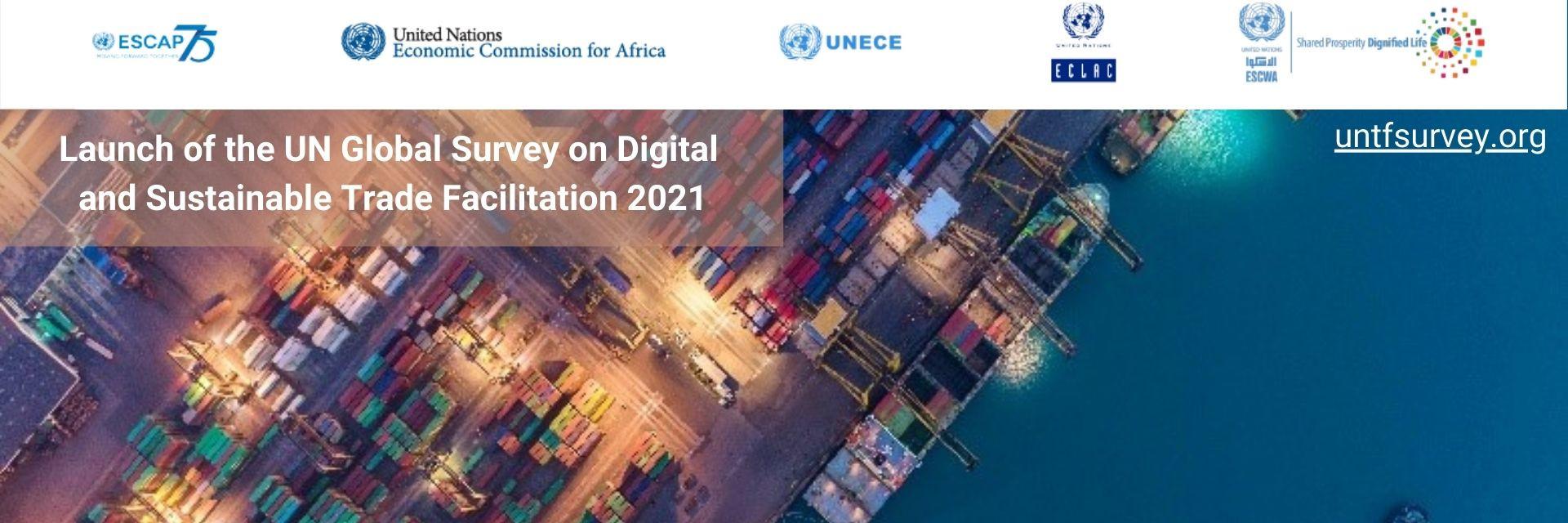Addis Ababa, 15 July 2021 (ECA) - Countries across the globe are continuing to move towards a seamless and efficient trading environment, within and beyond national borders, by simplifying and digitalizing formalities in international trading, helping to sustain international trade despite the disruption caused by the COVID-19 pandemic, according to a survey released today by the United Nations regional commissions.
The Fourth United Nations Global Survey on Digital and Sustainable Trade Facilitation is produced biennially by the Economic Commission for Africa (ECA), the Economic Commission for Europe (ECE), the Economic Commission for Latin America and Caribbean (ECLAC), the Economic and Social Commission for Asia and the Pacific (ESCAP) and the Economic and Social Commission for Western Asia (ESCWA) .
The Survey covers not only the trade facilitation measures in the WTO Trade Facilitation Agreement, but also digital trade facilitation measures associated with the Framework Agreement on Facilitation of Cross-border Paperless Trade in Asia and the Pacific, a UN treaty which entered into force earlier this year. The Survey also pays special attention to sectors and groups with special needs, such as the agricultural sector, small and medium enterprises and women traders. A new module on trade facilitation during times of crisis like the COVID-19 pandemic was integrated this year.
Many developing countries have made rapid progress in streamlining trade procedures, particularly in Asia and the Pacific. The Survey, covering 143 countries, shows the global average implementation rate of trade facilitation and paperless trade measures at 65 per cent. Based on 128 common countries, it is an increase of 5 percentage points from an average of 61 per cent to 66 per cent in the last Survey in 2019. In 2021, developed economies have the highest implementation rate (82 per cent), followed by countries in South-East and East Asia (75 per cent). Pacific Islands have the lowest implementation rate (44 per cent).
“Implementation of cross-border paperless trade remains a challenge everywhere, even though the COVID-19 pandemic highlighted how useful it can be to exchange documents electronically to reduce physical contacts and the spread of the virus,” according to Armida Salsiah Alisjahbana, United Nations Under-Secretary-General and Executive Secretary of ESCAP. “I encourage all leaders to take advantage of all available global and regional mechanisms to make progress, such as the WTO Trade Facilitation Agreement and the Framework Agreement on Facilitation of Cross-border Paperless Trade in Asia and the Pacific.”
The results are available at untfsurvey.org. The global and regional reports, including detailed data analysis, will be published later this year.
Issued by:
Communications Section
Economic Commission for Africa
PO Box 3001
Addis Ababa
Ethiopia
Tel: +251 11 551 5826
E-mail: eca-info@un.org

